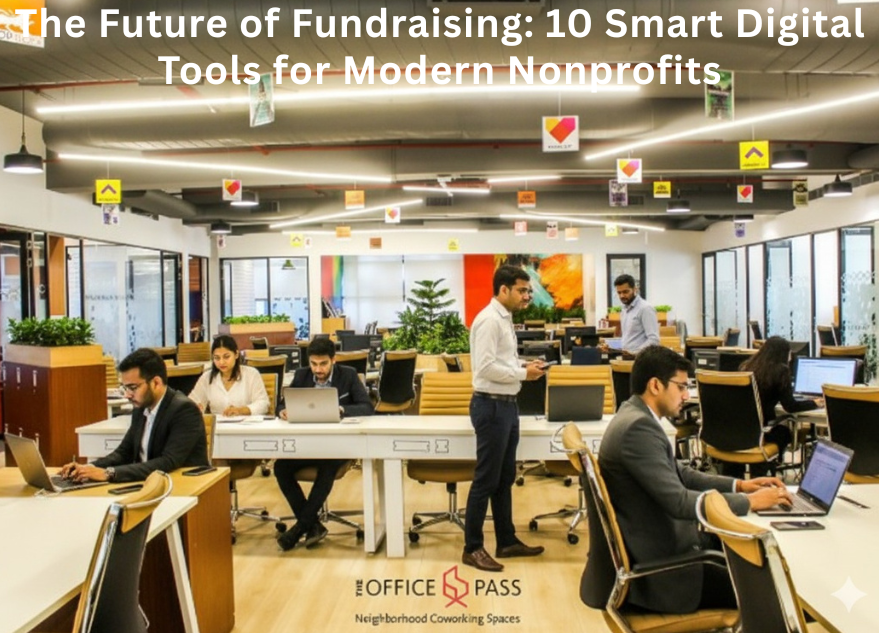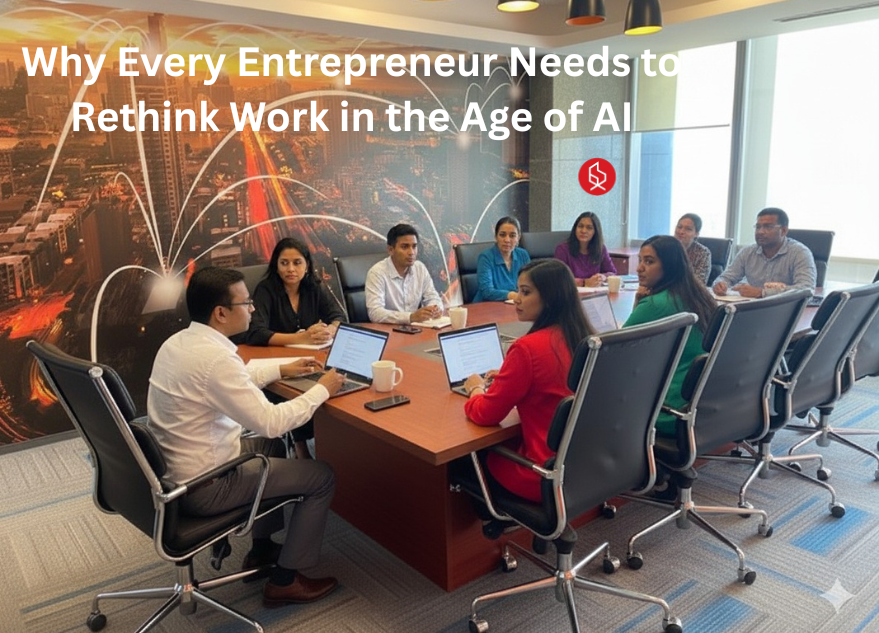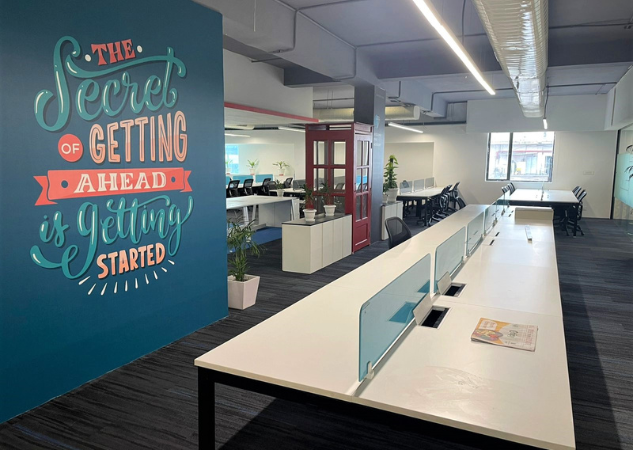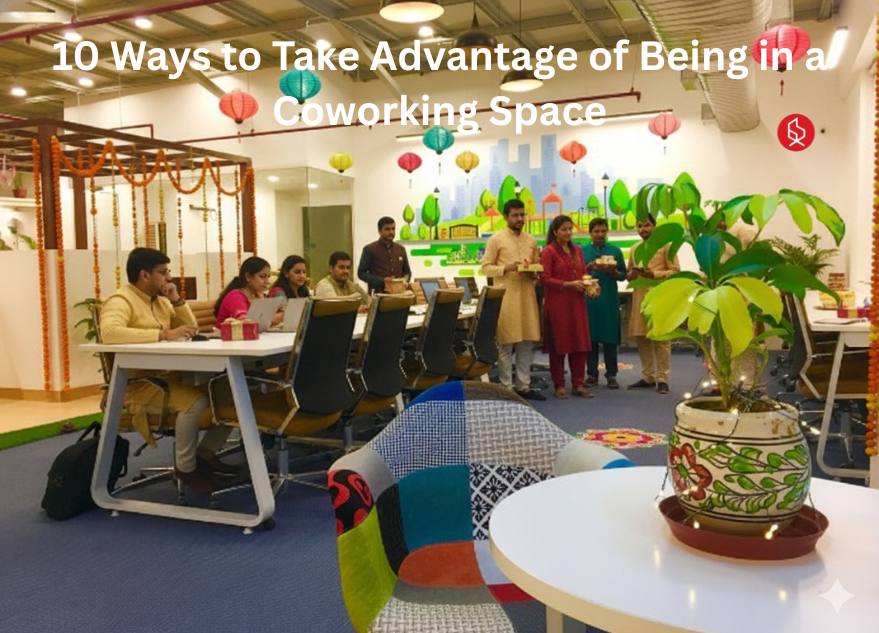In today’s digital-first world, fundraising has transformed from door-to-door campaigns to dynamic online initiatives. With the right digital fundraising tools, modern nonprofits can reach global donors, automate operations, and create lasting impact with minimal effort.
💡 Are you looking for Coworking space in Gurgaon, Noida or Delhi? We are just a call away. Call Now: 08999 828282
10 Essential Digital Tools Every Nonprofit Needs
- GoFundMe Charity – Simplifying Online Donations
- Classy – Powerful Fundraising Software for Growth
- Donorbox – Streamlined Giving Experience
- Givebutter – Engaging Fundraising Through Storytelling
- Fundly – Perfect for Visual Campaigns
- Qgiv – Flexible Donation Management
- Bonfire – Fundraising Through Custom Merchandise
- Snowball – Fast and Mobile-Friendly Donations
- OneCause – Ideal for Events and Auctions
- CauseVox – All-in-One Digital Fundraising Platform
1. GoFundMe Charity – Simplifying Online Donations
GoFundMe Charity is one of the most popular online fundraising platforms for nonprofits looking to run donation campaigns easily. It allows organizations to set up branded pages, track donor engagement, and integrate social sharing tools to reach wider audiences. The platform’s transparent fee structure and simple user interface make it ideal for smaller charities or startups. For nonprofits seeking the best fundraising sites, GoFundMe Charity offers reliability and an active donor base that drives results.

2. Classy – Powerful Fundraising Software for Growth
Classy is a robust nonprofit fundraising software designed to scale with your organization. It offers peer-to-peer fundraising, recurring donations, and event management all in one place. What sets Classy apart is its sleek design and detailed analytics, helping nonprofits measure campaign performance effectively. With its integration capabilities and mobile-friendly platform, Classy is one of the best fundraising platforms for nonprofits aiming for professional-grade digital engagement.
3. Donorbox – Streamlined Giving Experience
Donorbox stands out as a flexible fundraising platform for nonprofits that supports recurring donations and customizable donation forms. It integrates seamlessly with websites, CRMs, and email marketing tools. Whether you’re a church, school, or community-based organization, Donorbox offers simplicity and speed in collecting donations online. Its donor management features help nonprofits build long-term relationships, making it one of the top digital fundraising tools available today.
Also Read: How Can Entrepreneurs Navigate Fundraising Challenges and Win Over Investors?
4. Givebutter – Engaging Fundraising Through Storytelling
Givebutter focuses on social storytelling and donor engagement. This online fundraising platform combines fundraising pages, events, and peer-to-peer campaigns into one user-friendly tool. Givebutter supports video, GIFs, and social sharing perfect for nonprofits that want to connect emotionally with donors. Its transparent pricing and integrations with PayPal and Venmo make it a favorite among new and growing nonprofits.
5. Fundly – Perfect for Visual Campaigns
Fundly is an ideal fundraising tool for nonprofits that rely heavily on visuals and storytelling. With its easy-to-use campaign builder, nonprofits can upload photos, share stories, and update donors in real time. Fundly is especially popular among smaller organizations that want to create a personal connection with donors. As one of the best fundraising platforms for nonprofits, it helps campaigns gain momentum through social media sharing.
6. Qgiv – Flexible Donation Management
Qgiv is a feature-rich nonprofit fundraising software that supports online giving, auctions, and text-to-give campaigns. Its customizable forms, event registration options, and donor tracking make it a comprehensive choice for digital fundraising. Nonprofits can also access detailed reports to analyze campaign success. Qgiv’s focus on donor experience ensures long-term engagement, making it one of the most effective fundraising platforms for nonprofits.
7. Bonfire – Fundraising Through Custom Merchandise
Bonfire helps nonprofits fundraise creatively by selling custom-designed merchandise online. This digital fundraising tool allows you to launch T-shirt campaigns, set profit margins, and collect donations simultaneously. It’s a unique way to raise funds while increasing brand visibility. For organizations looking for online fundraising platforms that go beyond donations, Bonfire is an excellent option to engage supporters through tangible products.
8. Snowball – Fast and Mobile-Friendly Donations
Snowball makes giving quick and easy with text-to-give and one-click donation features. As a leading fundraising platform, it’s optimized for mobile users an essential factor in today’s digital landscape. Nonprofits can send personalized campaigns, automate thank-you notes, and track giving history seamlessly. Snowball’s simplicity makes it ideal for small to mid-sized organizations looking for affordable and efficient fundraising tools for nonprofits.
💡 Are you looking for Coworking space in Gurgaon, Noida or Delhi? We are just a call away. Call Now: 08999 828282
9. OneCause – Ideal for Events and Auctions
OneCause specializes in event-based fundraising, including silent auctions and galas. This nonprofit fundraising software simplifies event registration, bidding, and mobile giving, all from a single dashboard. Its analytics features help nonprofits understand donor behavior and plan future events effectively. If your organization hosts frequent fundraising events, OneCause is one of the best fundraising platforms for nonprofits to consider.
10. CauseVox – All-in-One Digital Fundraising Platform
CauseVox provides a complete suite of tools for campaigns, events, and peer-to-peer fundraising. Its intuitive dashboard, storytelling tools, and automation features make managing donations easy. As one of the most trusted fundraising platforms, CauseVox empowers nonprofits to focus on impact rather than admin tasks. It’s particularly suited for teams looking for a customizable, branded experience in nonprofit fundraising software.
The future of fundraising is digital, data-driven, and donor-focused. With so many smart fundraising platforms for nonprofits, organizations can now build meaningful donor relationships and expand their impact globally. Whether you’re launching your first campaign or scaling your nonprofit, choosing the right online fundraising platform will determine your success. Start exploring these tools today to transform your fundraising strategy.
For a collaborative workspace that empowers nonprofit teams to brainstorm, plan, and grow effectively, explore The Office Pass (TOP). With its flexible coworking spaces designed for creativity and connection, TOP provides the perfect environment to power your fundraising goals. Contact TOP at +91 8999 828282 to learn more.
FREQUENTLY ASKED QUESTIONS (FAQS):
Question: What is a digital fundraising tool?
Answer: A digital fundraising tool is software that helps nonprofits collect donations online, manage donor data, and run campaigns efficiently. These tools simplify tasks like tracking contributions, sending thank-you notes, and creating branded fundraising pages to reach a wider audience.
Question: Why should nonprofits use online fundraising platforms?
Answer: Online fundraising platforms make it easier to reach global donors, automate payments, and manage campaigns. They also provide data insights that help organizations understand donor behavior and improve future fundraising strategies.
Question: Which are the best fundraising platforms for nonprofits?
Answer: Some of the best fundraising platforms include GoFundMe Charity, Classy, Donorbox, Givebutter, and CauseVox. These tools offer features like peer-to-peer fundraising, donor tracking, and event management that fit organizations of all sizes.
Question: How do fundraising platforms for nonprofits work?
Answer: These platforms provide nonprofits with tools to create campaigns, share donation links, and collect funds securely. Donors can contribute online, and nonprofits can monitor performance, automate receipts, and track donor engagement easily.
Question: Are digital fundraising tools secure?
Answer: Yes, most reputable nonprofit fundraising software use encryption and secure payment gateways to protect donor information. Always choose platforms with SSL certification and trusted payment options like PayPal or Stripe.
Question: Can small nonprofits use fundraising software?
Answer: Absolutely. Many fundraising tools for nonprofits offer free or low-cost plans for small organizations. Tools like Donorbox and Givebutter are perfect for nonprofits with limited budgets looking to scale gradually.
Question: What features should I look for in a fundraising platform?
Answer: Key features include donation form customization, analytics, mobile optimization, CRM integration, and peer-to-peer fundraising options. The right fundraising platform should match your organization’s goals and technical capacity.
Question: How do peer-to-peer fundraising tools help nonprofits?
Answer: Peer-to-peer tools allow supporters to create personal fundraising pages, expanding your reach through their networks. This method builds community engagement and increases donations through word-of-mouth advocacy.
Question: Can fundraising software integrate with CRM systems?
Answer: Yes, most modern nonprofit fundraising software integrates with CRM tools like Salesforce or HubSpot. This integration helps nonprofits track donor interactions, manage contacts, and personalize communication more effectively.
Question: What’s the future of digital fundraising?
Answer: The future of digital fundraising lies in AI-driven personalization, automation, and mobile-first giving. As more donors move online, nonprofits that adopt the latest digital fundraising tools will thrive and build stronger donor relationships.









